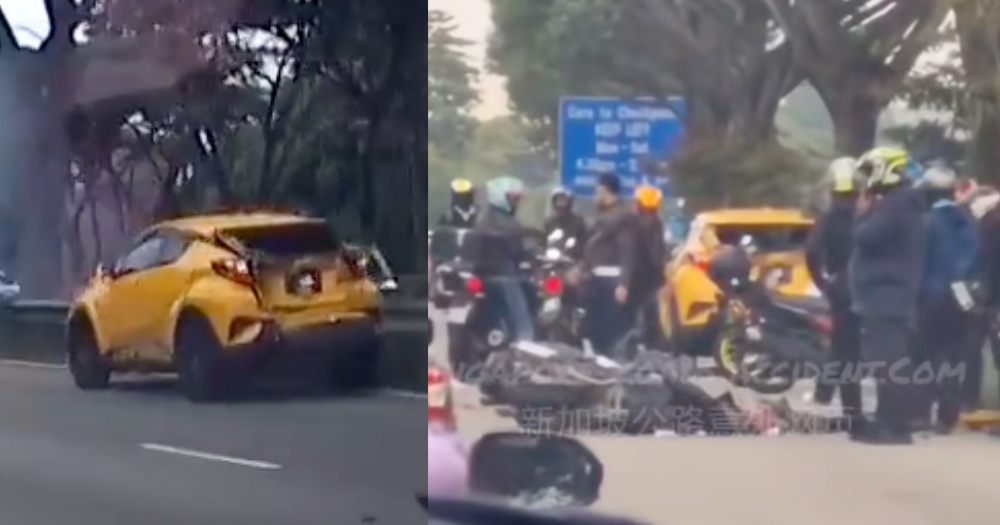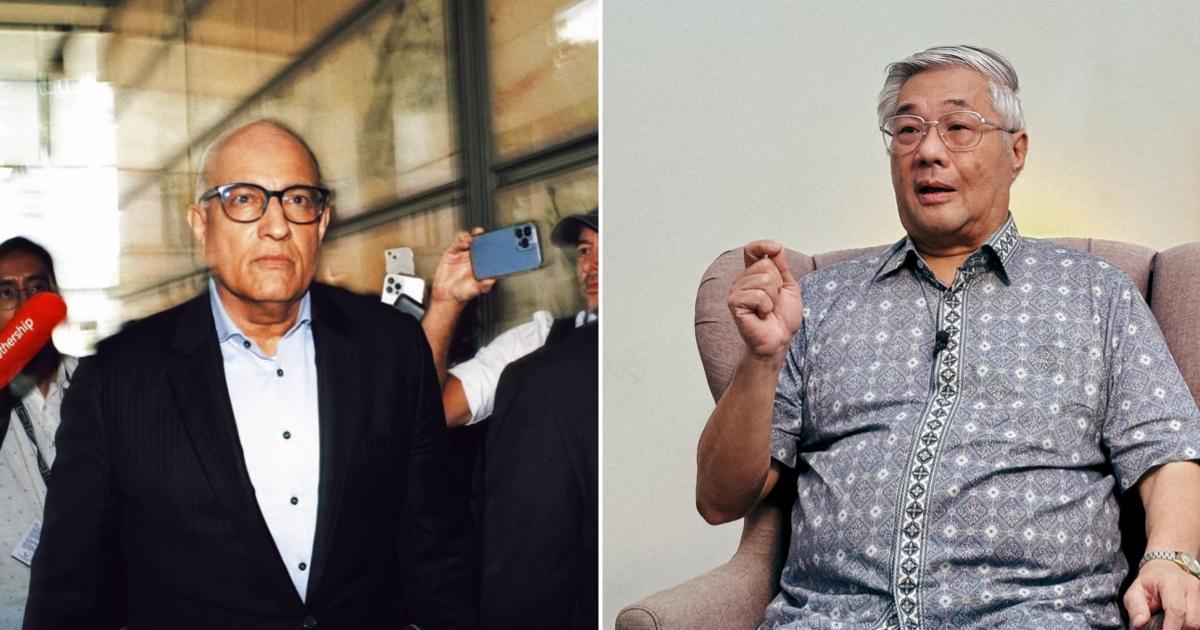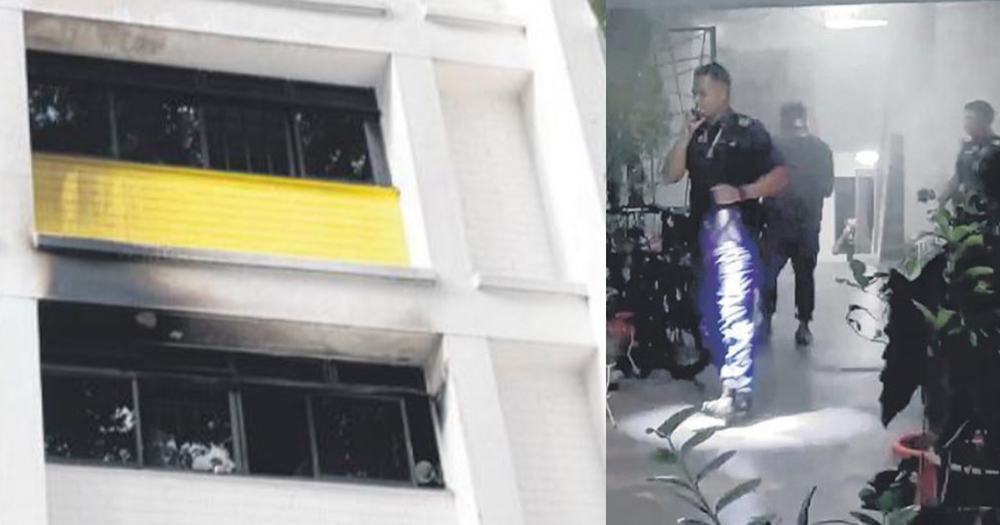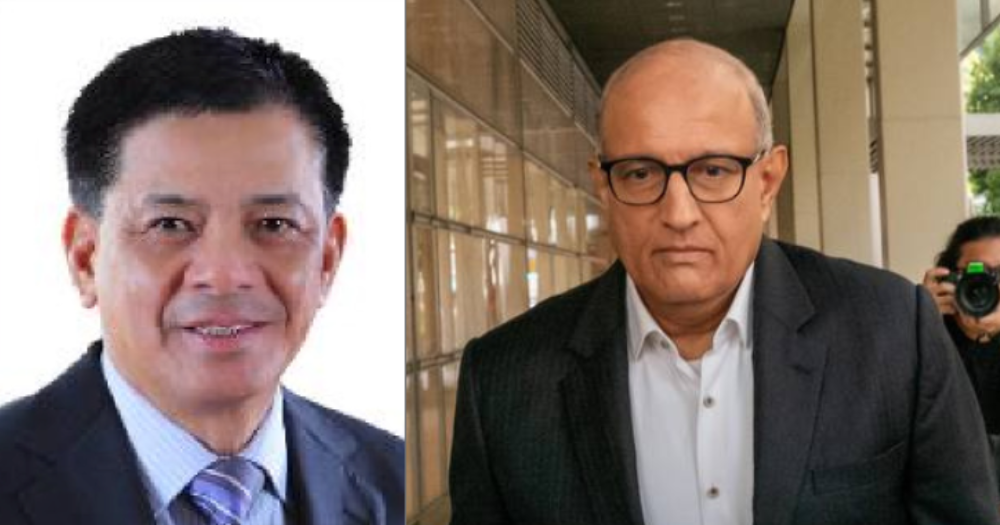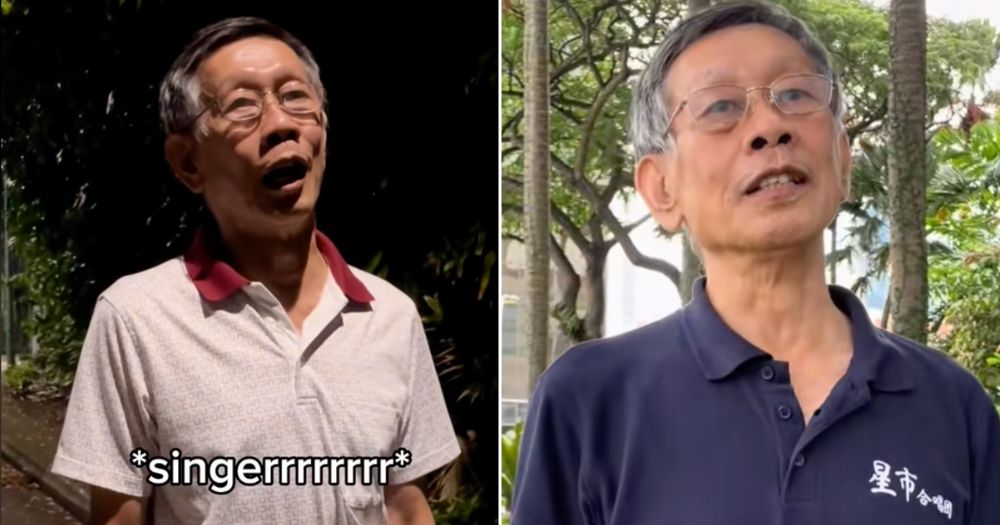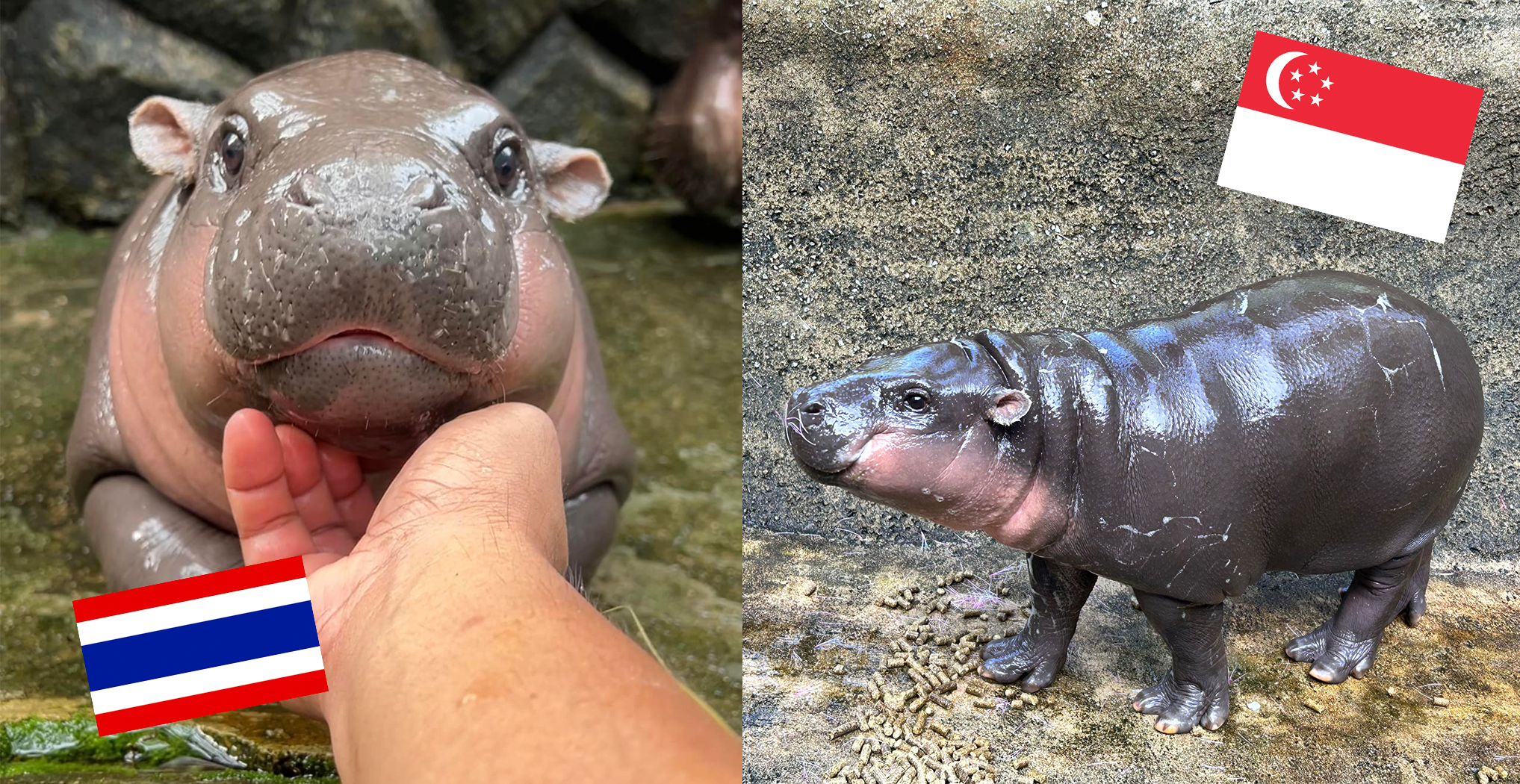Billionaire hotelier Ong Beng Seng charged with 'abetment' in relation to Iswaran’s case. What’s 'abetment' anyways?
There are three kinds of abetment.
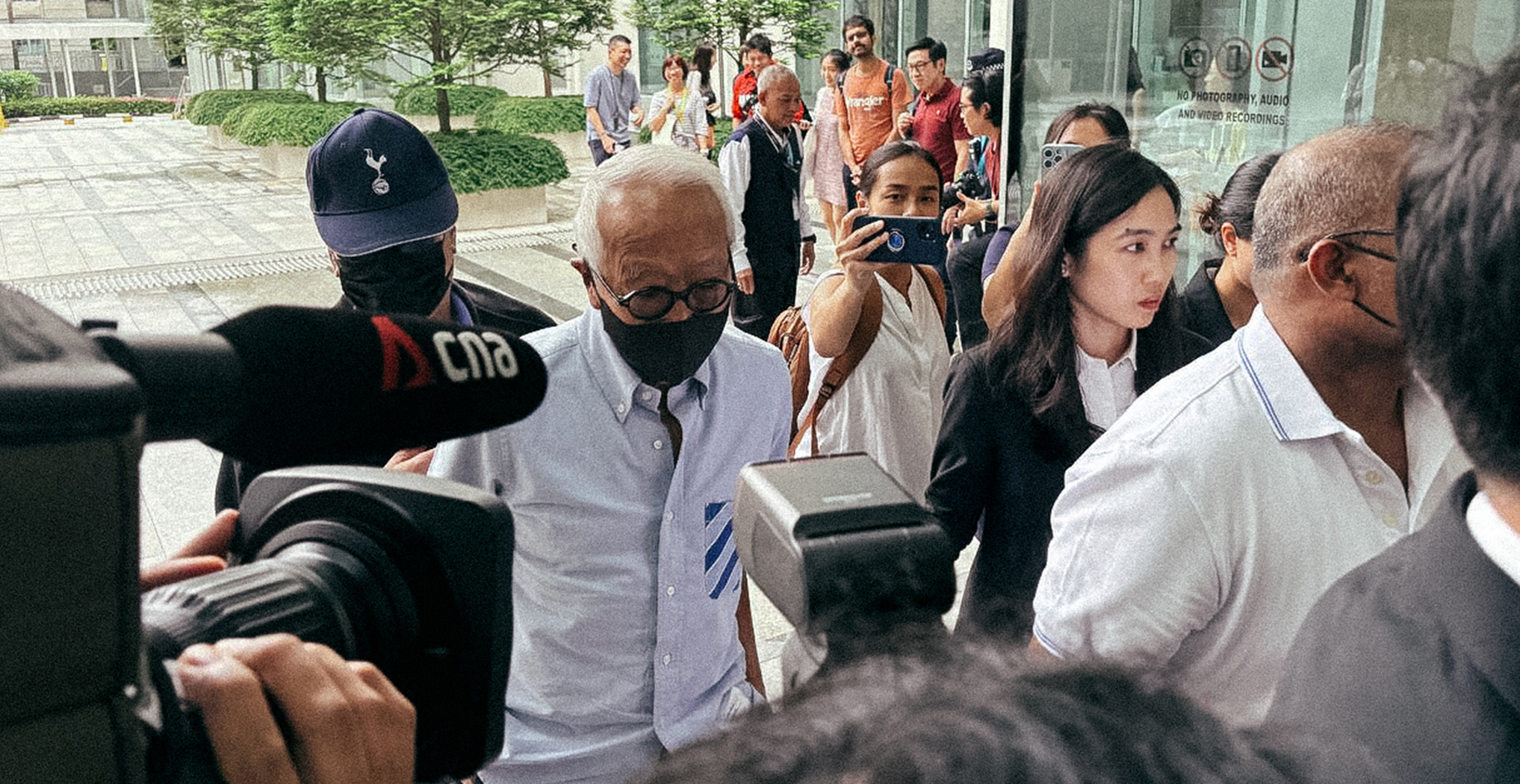
A day after former transport minister S Iswaran received his sentence, billionaire hotelier Ong Beng Seng appeared at the State Courts, lawyers in tow.
He faced two charges in relation to Iswaran's case. Both were in relation to the Doha-Singapore trip that he had allegedly instigated the then-minister to go on in December 2022.
Under the first charge, he allegedly made arrangements for Iswaran to fly between Singapore and Doha — on a private plane, and through a business-class ticket — and booked him a one-night stay at the Four Seasons Hotel Doha.
Under the second, he helped Iswaran to make a payment for the business-class flight from Doha to Singapore, hence obstructing the course of justice.
Both charges were listed as "abetment" — which, under the Penal Code, warrants punishment as though Ong had committed the offence himself.
But what does that word even mean?
Three types of abetment
Former attorney-general and academic Walter Woon sat down with Mothership to help break it down: there are three different types of abetment: Conspiracy, instigation, and facilitation.
Remember: Section 165 of the Penal Code makes it an offence for a public servant to obtain any valuable thing "without consideration" from a person concerned in any proceeding or business transacted by such public servant.
With that in mind, here's how abetment of an offence under Section 165 of the Penal Code works.
"Conspiracy" means planning to commit a crime. Example: giving a gift to a minister, and having pre-planned it. *("He's asked you for it, you've agreed to it. That could very well count as conspiracy," Woon said.)
The second type of abetment is "instigation", which means encouraging someone to commit a crime. Example: offering a gift to a minister, and hence encouraging him to break the law.
And the third type is "facilitation", which means intentionally assisting someone to commit a crime. Example: obtaining a bottle of whisky for a minister who has, perhaps, previously expressed interest in it.
All three count as abetment.
Element of fault in abetment
Woon suggested that the element of fault could be higher for the abetter, than for the person being abetted.
"I would say that that's likely to be the situation — that you would need some sort of intention to influence [in order to be convicted of abetment of a Section 165 offence]."
A public servant being abetted to commit an offence under Section 165, and who may not have a corrupt motive, could still be convicted.
However, Woon said that for the abetter, having such an intention would be a clear scenario which would count as abetment:
"If you give a gift to someone in an influential position, intending to influence him, then clearly that is going to be abetment of a [Section 165 offence]."
But it's less clear in other situations, where the gift-giver's intent is harder to ascertain.
In such situations, it's important to consider the context.
Take, for example, a person who is generous in nature. This person regularly gives gifts to everybody — his PA, his driver, his staff — and not just influential people in high positions.
"If he can show that he's that kind of generous person, it would be easier for him to say, 'Look... I didn't have a corrupt motive. I'm just a generous person,'" Woon said.
On the other hand, if the person is more selective with his gift-recipients, it might carry a different signal.
"If the only people you invite on your superyacht are influential people... your driver doesn't get it, your PA who's worked for you for 20 years doesn't get it... then what are the conclusions we draw from that?"
Woon also pointed out that there have been no previous convictions under Section 165 in Singapore, and that whether the abetment of a Section 165 charge necessarily requires intention to influence is not yet clear, "at least until the court speaks" on this particular question.
Background of Ong's case
In Ong's case, both charges were regarding the Singapore-Doha trip, which Iswaran — as a minister and chairman of the F1 Steering Committee — knew concerned the facilitation agreement for the Singapore Grand Prix 2022 to 2028, between Singapore GP and the Singapore Tourism Board.
In the first charge, the property tycoon allegedly offered the former minister the trip to Doha with all the arrangements made, including a S$4,737.62 hotel stay at the Four Seasons Doha.
Whereas in the second charge, Ong intentionally aided Iswaran to repay the cost of the business-class ticket he'd given to Iswaran previously, billing him for the S$5,700.
This had a "tendency to obstruct the course of justice", charge sheets said.
It remains to be seen how Ong will plead.
On his defence lawyer's request, the case was adjourned for six weeks.
He is expected to return to court on Nov. 16.
Related stories
Top phot by Daniel Seow
MORE STORIES







